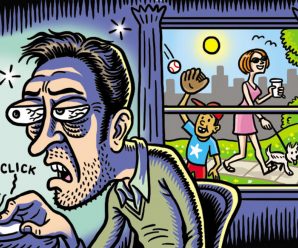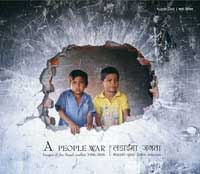Young people and mental health in a changing world

21st century, the era of advanced technologies. One of the greatest and most useful discoveries of the late centuries with remarkable impact is the information super high way the internet contains tremendous impact in today’s society. The growth of internet provides developing prospects for online information and to useful books for students across the globe. The internet is a global network of computer largely based on platforms of wireless communication which provides ubiquitous capacity of multi model, interactive communication in chosen time and transcending space. The internet thus creates new ways for individuals to communicate, congregate and share information of their social life. It is obvious that the internet has and will continue to change the way we live. How it has changed the way we live, and will continue to change our lives, is the reason for so many evolving discourse. The internet therefore has changed the field of education, health and business and even politics in the world. We can thus recognize the fact that the internet expands social, political and economic activities of today’s peoples all over the world. Today, everyone is blessed with a phone in their and yes the internet connection to our phone mainly smart phone has become now one of the basic needs. The world seems very small now-a-days, in a fraction of second we can connect to other part of globe and that too digitally. It seems as if our life flows through the waves of internet and phones. For every question we can today google, if we think of meeting some one we can come online, our books, notes, even we can browse lectures on internet. Life has become so easy and internet has proved to be boon for this era.
We, the Young people are the biggest consumers of technological advances. These numbers are likely to have risen as technology becomes more advanced and less expensive. The young generation have reached at an optimum level for the addictiveness of the internet, with regards to communication on social media. This is explained by the nature of face-to-face contact having distinct start and endpoints, whereas a back-and-forth conversation on social media can linger on in interrupted bursts for hours, if not days, with no discernable beginning, middle, or end. Our social media profiles present a skewed and selective view of our lives. A carefully selected presentation of smiling holiday photos, excited status updates, and significant life events is but a fraction of our total experience. Displaying the sweet without the bitter, as is usually the way, may amplify feelings of inadequacy, poor self-worth, and alienation in others, leading to a perfect modern depiction of “the grass is always greener.” Use of social media, at a time of important psychological development, as in childhood and early adolescence, has been linked with higher levels of jealousy toward others as well as higher rates of perceived stress, suicidal ideation, substance use, and decreased sleep.
Social media is most frequently the platform for cyberbullying among young people. Cyberbullying has received a wealth of attention from the media, schools, and concerned parents and its greater anonymity. Furthermore, the large majority of young people simply do not know where to report cyberbullying, which is alarming and may lead to increased feelings of isolation and helplessness. As we collectively spend more time online than ever, there are concerns around the blurring of the virtual world with the physical world, especially among adolescents at a critical time in their psychological development, who may not be able to discern the difference as a maturely developed adult might. This may become pertinent if an adolescent learns attitudes and behaviors from freely available online pornographic content, or has their first lone foray into exploring whole city environments via computer games made famous for their graphically violent content. Teenagers are now sharing significantly more personal and private information on social media websites than in the past, but are still relatively unconcerned about third party or unconsented access to these data. Furthermore, despite efforts by the social media giants to restrict unconsented access to personal information, the possibility of retrieving large amounts of personal, private information simply from having access to a Facebook friends list. Privacy is becoming more pertinent as we live more of our lives online, and recent events have implicated negatively on the actions of entire organizations and even governments inn online privacy violation. Some suggest that the speed of technological advancement and the increasing ease by which we are able to live our lives online has fast outpaced our ability to properly legislate, create a safe environment, or even understand the implications, and this is beginning to, and will need to continue to receive greater focus and attention in future.
However, because social media has evolved so quickly and has a deep impact on the social fibre and interpersonal relationships it’s important to explore the potential effects on young peoples’ emotional and mental health. Heavy usage can have a negative impact on physical well being which in turn can affect mental health. This is particularly relevant when it comes to sleep disturbance. There is linkage between sleep difficulties to screen time. Whether it’s the blue light of screens affecting sleep quality and quantity or the behavioural disturbances that make young people wake to check their phones reduced sleep is an important issue when it comes to mental health. Sleep is crucial for the developing adolescent brain, and lack of sleep is associated with lower mood and depression.
While social media was initially set up as means of connecting with others it is now also used as a means of comparing. It has become a barometer of how we measure up to others and this is a particular issue for young people who are socialized through the school system to ‘grade’ themselves in relation to their peers. As a consequences, we are increasingly engaging in “passive use” of social media- this is where we look at other peoples pictures and lives and compare them to our own- and it is bad for our mental health. The nature of social media is such that most people present the highlights of their lives more regularly than the boring stuff so these highlights appear to be the norm. Indeed, we tend to post when we are on a high and surf other peoples pages when we are on a low, so the differential between our real lives and the idealized lives we see on screen is further amplified leading us to feel like we cant measure up and that we are missing out. This can impact mental well being making one feel inferior and inadequate. People who are struggling with their mental health should not feel shame or fear in seeking treatments like Telehealth Therapy.
If I wanted to devise a ‘thinking’ exercise in poor self esteem I would get someone to take dozens of pictures, edit them post them for others to evaluate and then if they don’t get enough validation through likes, comments or reposts have them start all over again. This increased self-awareness and impression management that is inherent in Social Media engagement is I think the third area that impacts mental health. Being too active on Social media and worrying about regularly posting pictures and status updates has been linked to anxiety, poor body image and diminished mental health. The constant seeking of approval from others and searching for external validation means that young people don’t develop a secure sense of self that isn’t dependent on arbitrary conditions of worth. This preoccupation with how other people react to what we post on social media can lead young people to feel unsure about their value. They may start to worry about how they are seen, making them more self-critical of both their physical appearance and their lives in general. Constant posting may also open them up to receiving more negative or mean comments on line, rather than compliments or praise. Potentially they may be more at risk of being cyberbullyied which has been linked to serious depression and even suicidal behaviour in extreme cases.
So, while there are of course many benefits to social media as parents it’s important that we discuss with our kids the importance of using it in a healthier way. We need to have a talk about the impact of seeking approval from an online world that doesn’t really know them or comparing their lives to the edited versions of the lives they see online.
We need to talk about how it has the potential to effect sleep and therefore their health and through that help them make more informed choices about when to ‘switch off’ at night. Ultimately we need to remind them that social media is not the only way of being social and encourage more face to face interaction and connection reminding them to be wary of letting on-line engagement get in the way of good mental health and well being.
Author:
RASHMI JHA,
PATAN ACADEMY OF HEALTH SCIENCES,
4TH YEAR MBBS STUDENT






